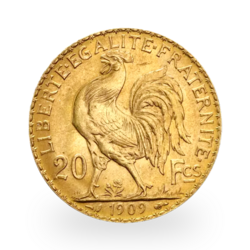Mario Draghi decided before handing off to Christine Lagarde on November 1: the QE will be relaunched! Quantitative easing, the sovereign debt buyback of eurozone countries, will restart at €20 billion per month, "for as long as necessary", he announced on September 12th at a press conference.
In practice, this new QE will be higher since the €2600 billion accumulated by the European Central Bank in its previous QEs (from March 2015 to December 2018) are kept precisely at this level, which means that loans that mature -and therefore provide repayment- are reinvested in new securities, as we have indicated. This corresponds to about €16 billion per month. The real QE, which will start on November 1st, will therefore be €36 billion per month, or €432 billion per year. This is more than enough to keep interest rates at zero or in negative territory.
Mario Draghi had the nerve to say that "negative rates have been actually a very positive experience in terms of stimulating growth, sustaining inflation"; while there has been absolutely no progress on these two indicators, which remain desperately sluggish! The future ex-president never understood that zero rates encourage large, unprofitable or loss-making companies to borrow to survive, whereas they would disappear in a normal interest rate environment (the phenomenon of "zombie companies"), which maintains excess production capacity, and causes a depressive effect on growth and prices. The President of the ECB has encouraged what he denounces!
However, he acknowledges that these negative rates have "negative side effects". Indeed, it sinks the banks by crushing their interest margin, their main resource (collecting deposits from savers by paying them interest and lending at a higher rate to companies and real estate buyers, and thus pocketing the difference; but it is now over). No problem, they will be able to borrow liquidity from the ECB at -0.50% (TLTRO 3 program), and thus engage in financial cavalry.
This time, it should be noted, public protests were made, in this case by Jens Weidmann, the President of the Bundesbank: he stated that the ECB had "crossed the line" and that "such a far-reaching package was not necessary". He added that, "this decision to buy more public debt will make it harder for the ECB to exit from this policy. The longer (such policies) last, the more the side effects and financial stability risks of the very expansive monetary policy will grow." A perfectly lucid diagnosis for the one who had been anticipated for years to take over the head of the monetary institution, before being overtaken at the last moment by Christine Lagarde, a follower of this lax policy, as we have shown. A missed opportunity for the euro, for Europe, which we risk paying a very high price for.
In the meantime, a cancer of negative rates continues to spread: in October, Lombard Odier will become the first French bank to tax its clients' cash, and other French banks are considering using it. Only deposits over €1 million are concerned. The measurement is anecdotal but revealing. Will life insurance and Livret A passbook savings accounts soon be in negative rates?
Reproduction, in whole or in part, is authorized as long as it includes all the text hyperlinks and a link back to the original source.
The information contained in this article is for information purposes only and does not constitute investment advice or a recommendation to buy or sell.

















